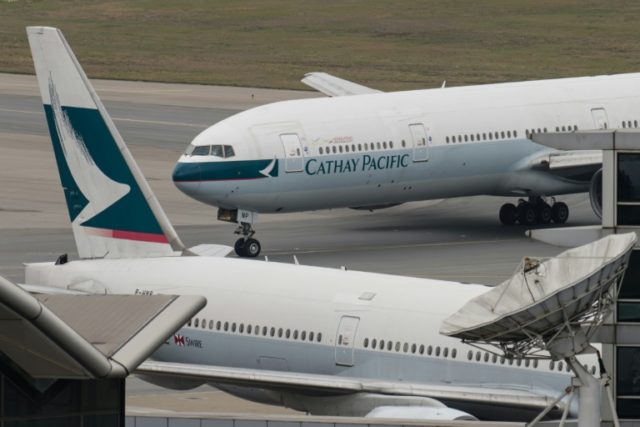Hong Kong (AFP) – Hong Kong’s troubled flagship airline Cathay Pacific on Wednesday posted its first annual loss since the height of the financial crisis as it was hit by “intense competition” and a drop in demand from business travellers.
The $74 million net loss reversed a $773 million profit in the previous year and comes as the firm prepares a wholesale review of its operations, with chairman John Slosar warning 2017 would be similarly “challenging”.
The results, the worst since 2008, were also well off expectations, with an average profit of $57.9 million forecast by analysts in a Bloomberg News survey.
The company’s shares were down almost five percent in early afternoon trade.
The airline announced a major restructuring programme in January that will see jobs axed, but it has not said how many.
“Our organisation will become leaner,” Slosar said in a statement to the Hong Kong exchange Wednesday. “Our aim is to reduce our unit costs excluding fuel over the next three years.”
Passenger revenue dropped 8.4 percent year-on-year to $8.6 billion, hit by overcapacity in the market and weak foreign currencies.
Despite a rising appetite for air travel in Asia-Pacific, Cathay is competing against firms that are aggressively expanding in the region as well as low-cost carriers, including fledgling Chinese rivals.
Analyst Jackson Wong of Huarong International Securities said Cathay had lost its niche and would find it hard to turn the corner.
“For a big company like this, with competition in the market now, it’s extremely difficult to turn around the business,” he told AFP.
Wong said cost-cutting was the path back to profitablity but believed the firm needed to be clearer about what its restructuring would entail to win back investor confidence.
Cathay said it had benefited from low oil prices — fuel accounts for a huge portion of a carrier’s costs — but that advantage was was reduced by $1.8 billion in hedging losses.
Those losses were “largely incurred on hedges put in place when the fuel price was much higher than today” Slosar said in the statement.
Oil hedging is when an airline locks in prices of fuel at a pre-determined level for a certain amount of time.
The group’s cargo revenue in 2016 also fell 13.2 percent on-year to $2.6 billion.
— Bloomberg News contributed to this report —

COMMENTS
Please let us know if you're having issues with commenting.